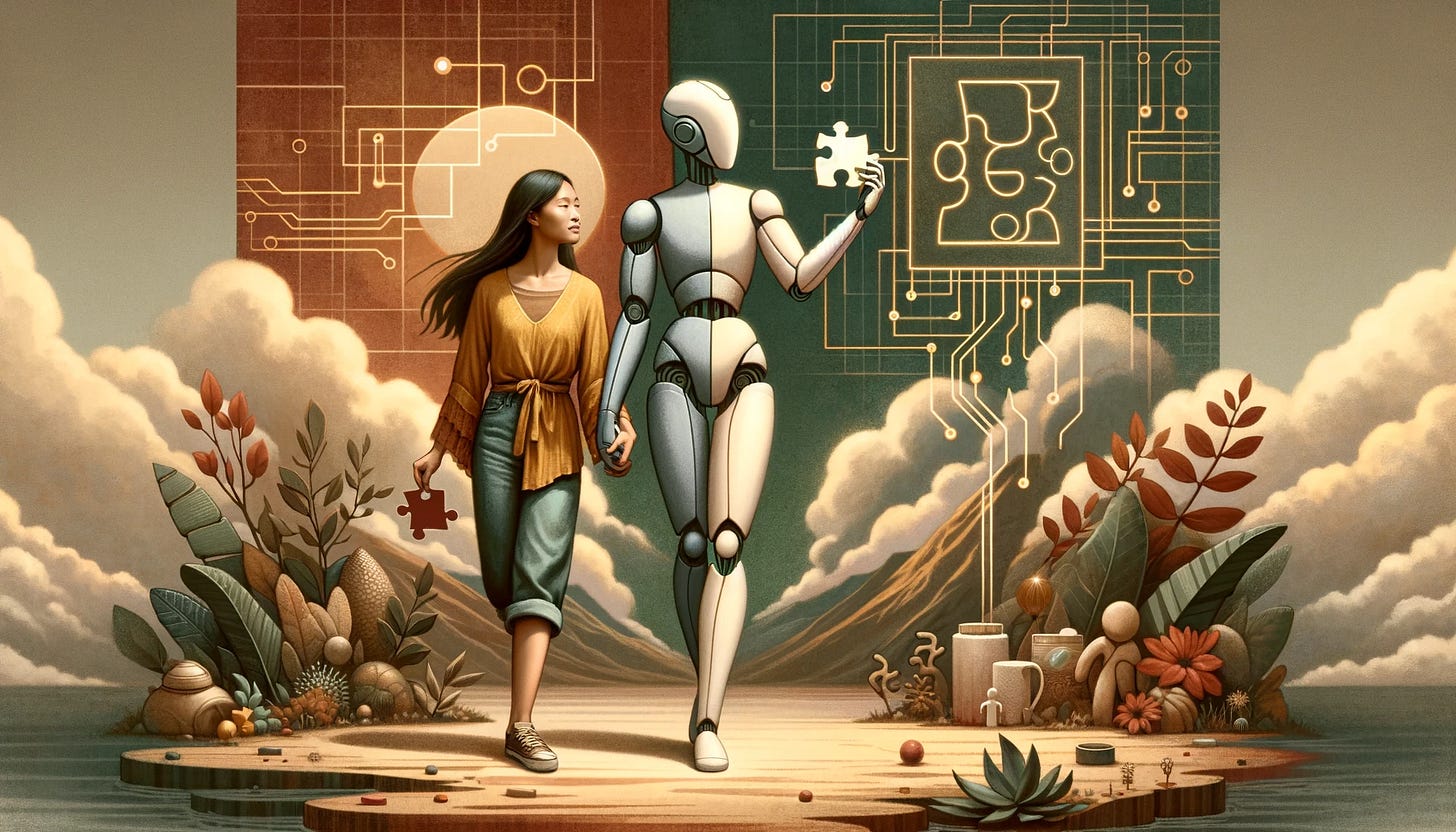Here's Why We Are Living During the Most Beautifully Balanced Era for Humans and AIs
Let’s enjoy it while it lasts
“AI won’t replace you, a human using AI will.”
That sentence has become one of the mottos of the generative AI age. It’s always been interpreted with an emphasis on how the combo human + AI can be superior to just humans. AI won’t take your job by itself but if you don’t learn to use the tools you will lose it anyway to someone else who does. That’s the plot twist.
There’s another twist that no one ever talks about. A non-trivial re-interpretation of the statement that remarks instead that a human + AI team is also superior to just AI.
This framing reveals the fleeting nature of the circumstances we are living in and how they yield a rare window of opportunity we have the good fortune to be able to cross — if we want.
From a historical vantage point, we are experiencing a beautifully balanced instant where humans exist, at the same time, on both sides of the “jagged frontier,” a line that defines the threshold of AI’s effective competence (i.e., performance). If we drew the human frontier, defining what we can do at our best, we’d see, very clearly, that more than ever before and more than ever again, both frontiers intersect everywhere.
We are better at some tasks that can be solved by intelligent or creative means and AIs are better at others. It’s hard to know, for a given problem, who is better from the onset (evaluating it is trickier than it seems) but we are comparable in a way that allows us to be teammates.
That's the better, more optimistic interpretation of that infamous sentence: A human using AI is both better than just a human and better than just an AI. And, for now, AIs and humans are generally similarly good at an increasing number of problems.
Beautiful, balanced, unprecedented, and ephemeral
You may say: This has always been the case.
That’s true, and not just with AI but with technology in general. A human using a calculator is better than a human doing mental arithmetic (a calculator alone can’t do much). However, the degree and quality that AI provides is hard to overstate. The cognitive aspect of systems like GPT-4 renders other technical innovations like the typewriter or the computer for writing, as mere tools in comparison.
They are not perfect, though. As Ethan Mollick puts it, the most capable AI systems aren’t like a pencil or a calculator but aren’t godly aliens either: they are better analogized by dumb interns who have an eidetic memory and work super fast. Or perhaps you prefer the copilot metaphor that Microsoft is championing.
You may also say: This will always be the case.
Well, you could be wrong. A human using AI will always be superior to just an AI. But the truth is that, theoretically at least (and taking some liberty in what I mean by AI here), the human element will lose value and importance over time, as far as solving cognitive or creative tasks goes, until the expression becomes this:
AI + human ~ AI; human ~ 0.
This may sound dramatic but if we look at the disciplines that AI has truly mastered above the best humans, the pattern is evident. Human performance eventually becomes not just practically useless, but even a hindrance. Chess is the quintessential example. A grandmaster using a modern chess engine will always obliterate a grandmaster playing alone.
But as soon as the former decides to ignore AI’s advice and make a different move, it will almost certainly be choosing the worse option. That’s a measure of how good chess-playing AIs have gotten. The amount of valuable input that the grandmaster using AI can effectively apply in the game tends to be zero.
I concede chess is a very special challenge: The information is perfect, the rules are clear, the constraints defined, and the action space discrete. It’s an “easy” problem for AI. At any given point during a game, there are many legal moves to play, but close to nothing compared to what’s possible in a near-infinite-degrees-of-freedom action space like the real world.
The real world is hard but there’s no reason to believe the lessons from game-playing AIs won’t apply to more and more areas as they get better. Indeed, recent evidence points to the contrary.



